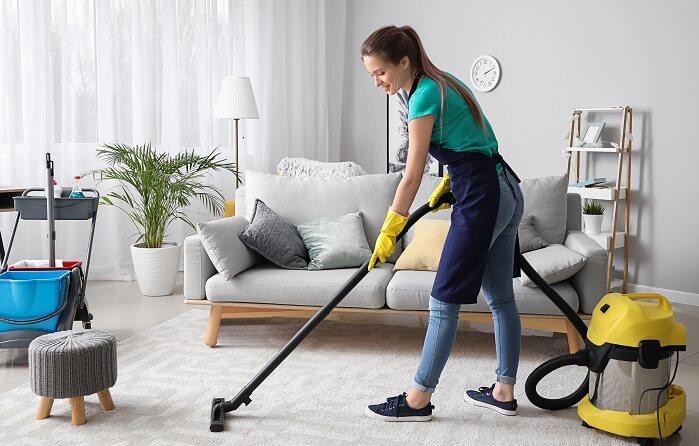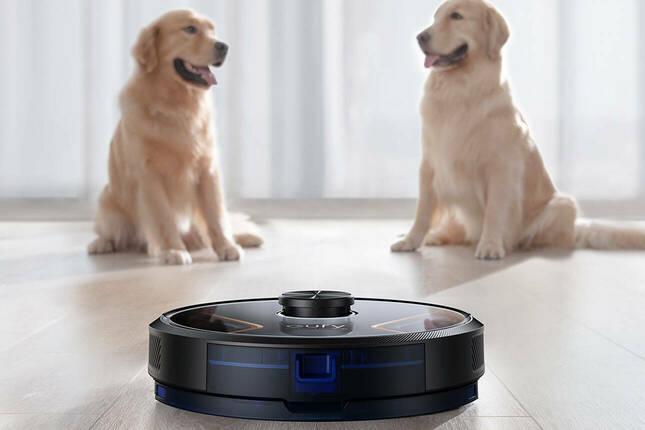Should You Vacuum or Dust First?
Cleaning a dusty room can seem daunting, but knowing the best order to tackle the job can make it more efficient. One common question is whether to vacuum or dust first. This article explores the best practices for cleaning a dusty room, including the optimal order, tips for effective dusting and vacuuming, and answers to frequently asked questions.

Vacuum First or Dust First?
The debate over whether to vacuum or dust first is common among cleaning enthusiasts. It’s generally more effective to dust first and then vacuum. This approach maximizes cleanliness by ensuring that any dust particles dislodged and knocked to the floor while dusting are not left behind. When you start by wiping down surfaces, you inevitably knock dust, pet hair, and other debris onto the floor. Following up with a vacuum ensures that these particles are effectively removed from your environment.
Moreover, if you vacuum first and then dust, you might find yourself needing to vacuum again, as the act of dusting can stir up and redistribute dust particles back onto the floor. Therefore, to save time and enhance the efficiency of your cleaning process, dusting before vacuuming is the optimal sequence. This method ensures a deeper and more thorough clean, keeping your living spaces fresher and reducing the amount of airborne allergens.
What is the Best Order to Clean a Dusty Room?

Cleaning in the right order can make the process more efficient and effective. Here’s a step-by-step guide to cleaning a dusty room.
1.Start at the Top: Begin by dusting ceiling fans, light fixtures, and the tops of cabinets. Any dust you dislodge will fall downward, so you’ll capture it later in the cleaning process.
2.Wipe Down Surfaces: Move on to dusting flat surfaces like shelves, mantels, and furniture. Use a microfiber cloth or a duster that traps particles rather than scattering them into the air.
3.Clean Textiles: Address any curtains, cushions, or upholstered furniture next. Use a vacuum with an upholstery attachment to remove dust from these fabrics effectively.
4.Dust Baseboards and Low Areas: After higher items and surfaces, clean any baseboards and low-reaching areas where dust might have settled.
5.Vacuum or Sweep the Floor: Once all the dust has settled, finish by vacuuming or sweeping the floor. This step ensures that all the dust and debris that fell during the cleaning process is picked up.
6.Mop (if applicable): If your room has non-carpeted flooring, follow up vacuuming with mopping to ensure all residual dust is removed and the floor is thoroughly cleaned.
Tips for Dusting and Vacuuming
Effective dusting and vacuuming require the right techniques and tools. Here are some tips to help you get the best results.
Dusting Tips:
Vacuuming Tips:
How Often Should You Dust and Vacuum?
The frequency with which you should dust and vacuum depends on several factors, including the size of your household, whether you have pets, allergies among household members, and how quickly dust accumulates in your home. Here’s a general guideline:
Conclusion
In conclusion, the best practice for cleaning a dusty room is to dust first and then vacuum. This method ensures that any dust stirred up during dusting is captured by the vacuum, resulting in a cleaner environment. By following the recommended order and using effective dusting and vacuuming techniques, you can maintain a dust-free home more efficiently. Establishing a regular cleaning routine will help prevent dust buildup and keep your living space healthy and comfortable.
FAQ
Does vacuuming stir up dust?
Yes, vacuuming can stir up dust, especially if the vacuum lacks a HEPA filter or if it’s old and inefficient. These vacuums may release some of the dust back into the air. A well-maintained vacuum with a HEPA filter helps minimize this issue by trapping fine particles effectively.
Is it better to clean dust wet or dry?
For best results, use a slightly damp cloth for dusting. Damp dusting prevents dust from becoming airborne and settling back on surfaces. Dry dusting with microfiber cloths is also effective for regular maintenance.
